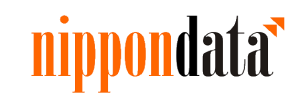No matter the type or industry, every business needs to manage human resources. Here comes the HRMS or human resource management system. It is a suite of software applications that are utilized to manage human resources as well as related processes during the entire employee cycle. With HRMS, a company can completely comprehend its workforce and adhere to complex tax laws and labor regulations.
The users of Newton HRMS are employees as well as HR managers as they deal with day-to-day operations. Moreover, HR is not the only department that benefits from this system. In order to attract a younger workforce, businesses might empower managers and staff with self-service for basic activities. An HRMS may be used by executives to get information on worker trends and their effects on the organization.
Additionally, HRMS integration with the accounting system is crucial for finance teams considering that HR-related costs are some of the biggest expenditures made by a firm. To assist a business in getting additional financial insights from HR data, leading suppliers will go above and beyond simple accounting.
History of HRMS
Payroll was the first HRMS function to be digitized in the 1970s as businesses sought to automate the administration of their workforce. Even more HR tasks benefited from automation as the internet expanded in the late 1990s. For instance, computerized job boards took the role of paper-based help-wanted advertising, offering recruiters and applicants additional channels for communication. By the 2010s, cloud computing had been widely used. HR teams at businesses of all sizes could now purchase a suite of apps without spending money on pricey computer hardware or hiring IT personnel to run and maintain the system.
Importance of HRMS
Because it simplifies and automates HR procedures, making them more efficient and accurate, HRMS is essential for businesses of all sizes. HR professionals may access crucial data on workers, payroll, benefits, and more from a single platform thanks to the centralization of data provided by HRMS. This not only saves time but also lessens the chance of making mistakes. Moreover, HRMS is crucial to compliance since it makes sure that businesses follow labor laws and regulations, reducing their exposure to legal liability. Empowering workers to do HR-related tasks like requesting time off or changing personal information themselves, improves employee self-service. Overall, HRMS improves employee happiness, labor management, and organizational efficiency, making it a crucial tool for modern businesses.
HRMS Functions
When considering the right HRMS for your company, it’s important to break it down into functional components. Typically, modern HRMS systems encompass seven key areas, each with its own level of significance.
Candidate Management
It is about the process of extending employment offers to candidates and how you present your company’s brand to potential applicants and current employees interested in internal positions. It’s crucial for organizations that prioritize the candidate experience, covering everything from job applications and resume management to interview scheduling and onboarding.
Employee Engagement
Engaged employees tend to produce higher-quality work and align more closely with the company’s values and vision. HRMS plays an important role in how employees connect with leadership and colleagues. It often serves as the platform for completing training, acquiring new skills, career development, recognition, and mentoring.
Employee Management
Often referred to as “core HR,” this function provides a stage for analysis, reporting, and compliance. It involves structuring the workforce into organizational units, defining reporting relationships, aligning payroll with accounting, and maintaining personal information. Employee self-service, reporting, and HR service delivery improvement often stem from this core function.
Optimization
This function leverages HRMS data to shape the future workforce. While it’s often underutilized, it becomes vital during mergers, acquisitions, economic shifts, or leadership transitions. Proactive workforce optimization leads to greater resilience to change, higher talent retention, and enhanced employee engagement.
Payroll
It is a primary function of HRMS which handles earnings calculations, deductions, and payments. Payroll includes benefit elections, and employee and employer costs, and can automate tax-related processes. Self-service features enable employees to manage deductions and direct deposits, and access earning statements independently.
Workforce Management
This area involves tracking employee development, manager evaluations, disciplinary actions, and time and attendance. Moreover, it ensures a safe work environment. Compensation planning, performance management, learning initiatives, and incident recording also fall under this category. HR teams can set up timesheets, overtime rules, time-off policies, and performance review processes here.
Contingent Workforce Management
While related to primary workforce management, this function is critical for companies employing part-time, contract, consultant, intern, or temporary workers. These individuals contribute specialized skills, support local initiatives, or handle labor demand spikes. Although not typically on the payroll or eligible for benefits, tracking their numbers and costs is essential.
Benefits of an HRMS
Human Resource Management Systems (HRMS) have become vital tools for firms looking to simplify their HR procedures and improve overall efficiency in today’s changing business environment. These systems provide a wide range of advantages that help firms succeed and expand. Let’s explore the main benefits of putting in place an HRMS.
Better Insights
Access to data-driven insights is one of the biggest benefits of adopting an HRMS. These systems gather and maintain a variety of data on employee productivity, attendance, turnover, and other topics. HR managers may make educated decisions by using analytics tools to gain valuable insights from this data. For instance, HR may identify high performers and create plans to keep and reward them by looking at employee performance measures.
Improved Employee Engagement
A key element in an organization’s success is employee engagement. By offering options for efficient communication, feedback, and acknowledgment, an HRMS may promote increased engagement. Employees are given the ability to take charge of their HR-related activities thanks to features like self-service portals, where they can access their personal details, seek leave, and examine pay stubs. Higher job engagement and job satisfaction are frequently a result of this autonomy.
Process Efficiency and Culture of Self-Service
HR professionals may now concentrate on strategic activities because HRMS solutions are intended to simplify HR procedures and lessen administrative obligations. HRMS solutions improve efficiency and accuracy by automating routine tasks like payroll processing, benefits administration, and time tracking. Additionally, the self-service component gives staff members the freedom to handle their HR requirements on their own, encouraging a culture of accountability and responsibility.
Lower Back-End Overhead
Typical traditional HR operations include a lot of paperwork, manual data entry, and physical storage requirements. HRMS solutions get rid of these inefficiencies by automating processes and digitizing documents. This lessens the need for physical resources while also lowering the possibility of mistakes during manual data handling.
Faster Recruiting
Any firm must have an effective recruitment strategy, and HRMS solutions help hasten the recruiting procedure. These systems include applicant tracking capabilities that let HR personnel post job postings, screen applicants, arrange interviews, and handle offers all from a single platform. This not only shortens the hiring process but also guarantees a systematic and uniform approach to hiring.
Conclusion
Employing Newton HRMS offers businesses perks that go beyond administrative effectiveness. It is a product of Nippon Data, a company renowned for providing IT-enabled business solutions across industries. It gives businesses the knowledge and insights they need to make wise decisions, improves employee happiness and engagement, and streamlines HR procedures to cut costs and boost output. HRMS systems are still crucial tools for attaining strategic HR goals and overall performance as firms continue to develop.



